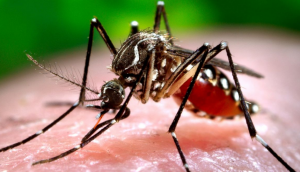I have been getting more questions about Zika Virus, as it becomes more of a global concern.
What is the concern with Zika virus?
 The main concern with Zika virus has to do with birth defects. Zika infections in pregnant women have been shown to cause birth defects especially microcephaly – a severe birth defect in which the head and brain are undersized. The risk of microcephaly occurs in 0.88% to 13.2% of the babies of pregnant women infected in the first trimester of pregnancy 1.
The main concern with Zika virus has to do with birth defects. Zika infections in pregnant women have been shown to cause birth defects especially microcephaly – a severe birth defect in which the head and brain are undersized. The risk of microcephaly occurs in 0.88% to 13.2% of the babies of pregnant women infected in the first trimester of pregnancy 1.
There can other birth defects also. The considered incidence of all Zika caused birth defects in the babies of women infected is about 29%2. Recent studies have revealed associations between symptomatic Zika infection during all trimesters and adverse pregnancy outcomes and potential peak risk during gestational weeks 14 to 17 weeks pregnancy 1.
Zika infection has also been linked in adults to a rare neurological syndrome known as Guillain-Barre, as well as other neurological disorders.
How could I be infected by Zika Virus?
The Zika virus is spread by a mosquito bite from a mosquito carrying the Zika virus. Zika virus can also be spread by sexual intercourse with someone who is infected by Zika virus.
A list of countries where cases of Zika virus infection has been reported is on the Australian Government Department of Health website 3.
In this listing, countries are classified as high risk, moderate risk and low risk. The listing is updated regularly.
What can be done if you are infected with Zika virus?
Sadly there is no vaccine and no cure for Zika virus infection.
Prevention relies on avoiding being bitten by mosquitoes in countries where the Zika virus occurs. Safe sex practices are also important in preventing sexual transmission.
How do I prevent myself from being infected by Zika virus?
There is excellent information on this topic on the relevant Australian Government Dept of Health website 4.
Avoid travel to risk countries During pregnancy and if planning a pregnancy avoid you or your partner travelling to a country where there have been reported cases of Zika virus especially those with high or moderate risk. Note that Singapore and Florida USA are considered high risk while Fiji, Indonesia, Malaysia, Philippines and Vietnam are considered moderate risk.
Currently, all cases of Zika virus diagnosed in Australia were caught overseas. In most parts of Australia, there is no risk of Zika virus being spread by mosquitoes. But in northern, central and southwest Queensland there are mosquitoes suitable to transmit Zika virus.
The mosquitoes that spread the Zika virus do not usually live at elevations above 2000 metres. Travellers who plan to only be in areas above this elevation are at low risk even in at-risk countries. Pregnant travellers should be aware of changes to travel plans that take them to lower elevations.
Avoid mosquito bites in at-risk countries If you must travel to a country at risk then avoid mosquito bites at all times (in the daytime and nighttime).
- Cover as much exposed skin as possible, including wearing light coloured long-sleeved shirts and long pants;
- Use insect repellents, applied according to the product label. The most effective mosquito repellents contain Diethyl Toluamide (DEET) or Picaridin. Repellents containing oil of lemon eucalyptus (OLE) (also known as Extract of Lemon Eucalyptus) or para menthane diol (PMD) also provide adequate protection. Note that insect repellents containing DEET or Picaridin, are safe for pregnant and breastfeeding women and children older than 2 months when used according to the product label. If you use both sunscreen and insect repellent, apply the sunscreen first and then the repellent;
- Use insecticide-treated (such as Permethrin) clothing and gear (such as boots, pants, socks, and tents); and
- Stay and sleep in screened-in or air-conditioned rooms. Use bed nets if you cannot keep mosquitoes from coming inside the room.
- Seek medical advice, as soon as practicable, if unwell during or soon after travel.
If not pregnant then avoid getting pregnant after you return from an at-risk country for at least eight weeks.
If your partner travels to an at-risk country and you are pregnant avoid sex and certainly unprotected sex (vaginal, oral, or anal) for the duration of your pregnancy.
If your partner travels to an at-risk country and you are planning a pregnancy then defer getting pregnant for six months after your partner returns. During that six months abstain from sex or use barrier (condom) protection. Condom usage is not 100% effective.
60 – 80% of people infected with Zika virus will not have any symptoms and so the WHO guidance applies to all travellers, whether or not they show symptoms of the virus 5.
There is new evidence on Zika transmission from asymptomatic males to their female partners and a symptomatic female to her male partner, as well as evidence that Zika is present in semen for longer than thought. Zika virus can be spread through anal sex and oral sex 5.
Checking for Zika virus
This can be arranged through your GP or through me if you are a current patient.
Also see
3 Australian Government list of Zika virus affected countries
4 Australian Government Zika Virus Factsheet – The Basics

